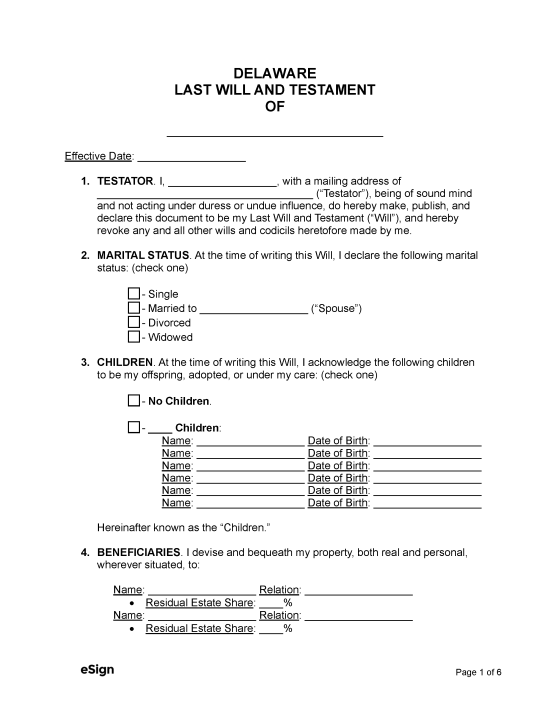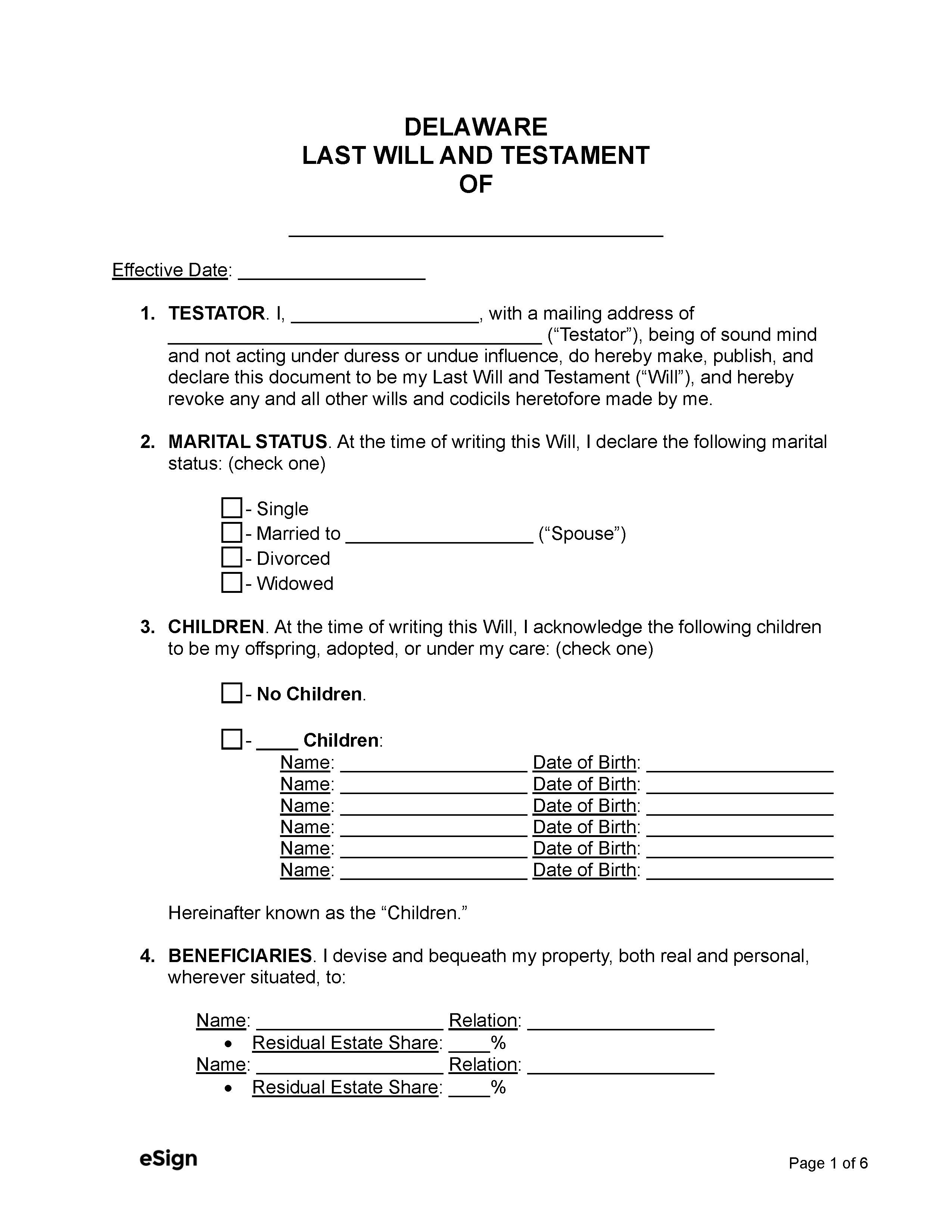State Laws
Probate in Delaware
When a person dies in Delaware, anyone in possession of their original will is legally obligated to deliver it to the Register of Wills Office within 10 days after learning of the decedent’s death.[5]
Petition to Act as Personal Representative
To begin the probate process, an appointment must be made with the Register of Wills Office in the decedent’s county of residence.[6]
The executor named in the will or the person chosen to represent the estate must complete and file a Petition to Act as Personal Representative. If available, the following documents will also need to be brought to the appointment for filing.
- Original copy of decedent’s will
- Original copy of decedent’s death certificate
- List of decedent’s solely-owned assets and their estimated values
- List of decedent’s solely-owned real estate and their estimated values
- List of decedent’s next of kin, including their name, address, and relationship
There are three Register of Wills offices in Delaware:
Small Estates
If an estate is valued at $30,000 or less and the following requirements are met, the beneficiaries may be able to request a Small Estate Affidavit to bypass probate.[7]
- 30 days have passed since the decedent’s death
- No Petition to Act as Personal Representative has been filed
- All debts have been paid or properly addressed
- The surviving spouse’s allowance has been accounted for
- The estate doesn’t include any out-of-state real property

